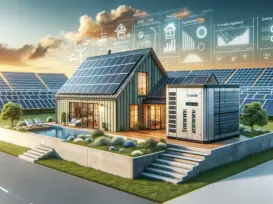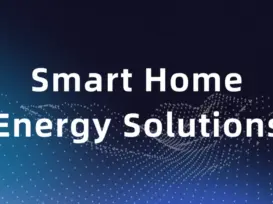Grus Home Energy - Energy Storage
Unlocking the Potential of Next-Generation Energy Storage Solutions for a Sustainable Future
Unlocking the Potential of Next-Generation Energy Storage Solutions for a Sustainable Future
As the world increasingly shifts towards renewable energy sources to combat climate change and reduce dependency on fossil fuels, the need for advanced energy storage solutions has never been greater. Energy storage plays a pivotal role in balancing supply and demand, enhancing grid stability, and ensuring a consistent energy supply even when the sun isn’t shining or the wind isn’t blowing.
The current energy landscape is witnessing rapid advancements in energy storage technologies. Traditional lead-acid batteries are gradually being supplanted by lithium-ion batteries, which offer higher energy density, longer lifespans, and better performance. However, the quest for even more efficient, cost-effective, and environmentally-friendly storage options continues unabated.
One of the most promising areas of development is solid-state batteries. These batteries promise to be safer and have even higher energy densities than conventional lithium-ion variants, potentially revolutionizing electric vehicles (EVs) and energy storage systems. Companies and research institutions worldwide are pouring resources into overcoming the technical challenges associated with solid-state technology to bring these batteries from the lab to the market.
Another innovative approach is the use of flow batteries, which store energy in liquid electrolytes that flow through a cell. Flow batteries are particularly well-suited for large-scale energy storage applications, such as stabilizing the grid or storing energy from utility-scale renewable installations. They can be easily scaled up, have long cycle lives, and are not prone to the same degradation issues as some solid batteries.
Compressed air energy storage (CAES) is another technology receiving heightened interest. It involves storing energy in the form of compressed air in underground caverns or containers. When energy is needed, the compressed air is released to drive turbines that generate electricity. While CAES is not as energy-dense as chemical batteries, it offers a viable solution for large-scale, long-duration energy storage.
Thermal energy storage systems are also gaining traction, particularly in areas where heating and cooling demands are substantial. By storing heat or cold in materials like molten salts, water, or phase-change materials, these systems can help to smooth out the energy demands of buildings, districts, or industrial processes, making more efficient use of renewable energy sources.
Moreover, the integration of artificial intelligence (AI) and machine learning into energy storage systems is enhancing their efficiency and reliability. AI can predict energy consumption patterns, optimize charging and discharging cycles, and perform real-time management of storage assets. This intelligent layer not only maximizes the lifespan of the storage systems but also enables them to provide ancillary services such as frequency regulation and demand response, adding value to the electrical grid and the overall energy ecosystem.
To ensure a sustainable transition to a renewable energy future, investment in research and development, supportive policies, and the deployment of an array of energy storage technologies are vital. This includes encouraging innovation in battery chemistry, exploring alternative storage methods, and building the infrastructure necessary to support these technologies.
In conclusion, the potential of next-generation energy storage solutions is vast and multifaceted. By continuing to develop and deploy these technologies, we can smooth the path towards a reliable, efficient, and sustainable energy system that is less reliant on carbon-intensive power generation and more resilient to the fluctuations of renewable energy production. The future of energy storage is not only about storing electricity; it’s about unlocking a new realm of possibilities for our energy grids and society as a whole.
©2025 All Rights Reserved. Grus IoT Co.,Ltd.

